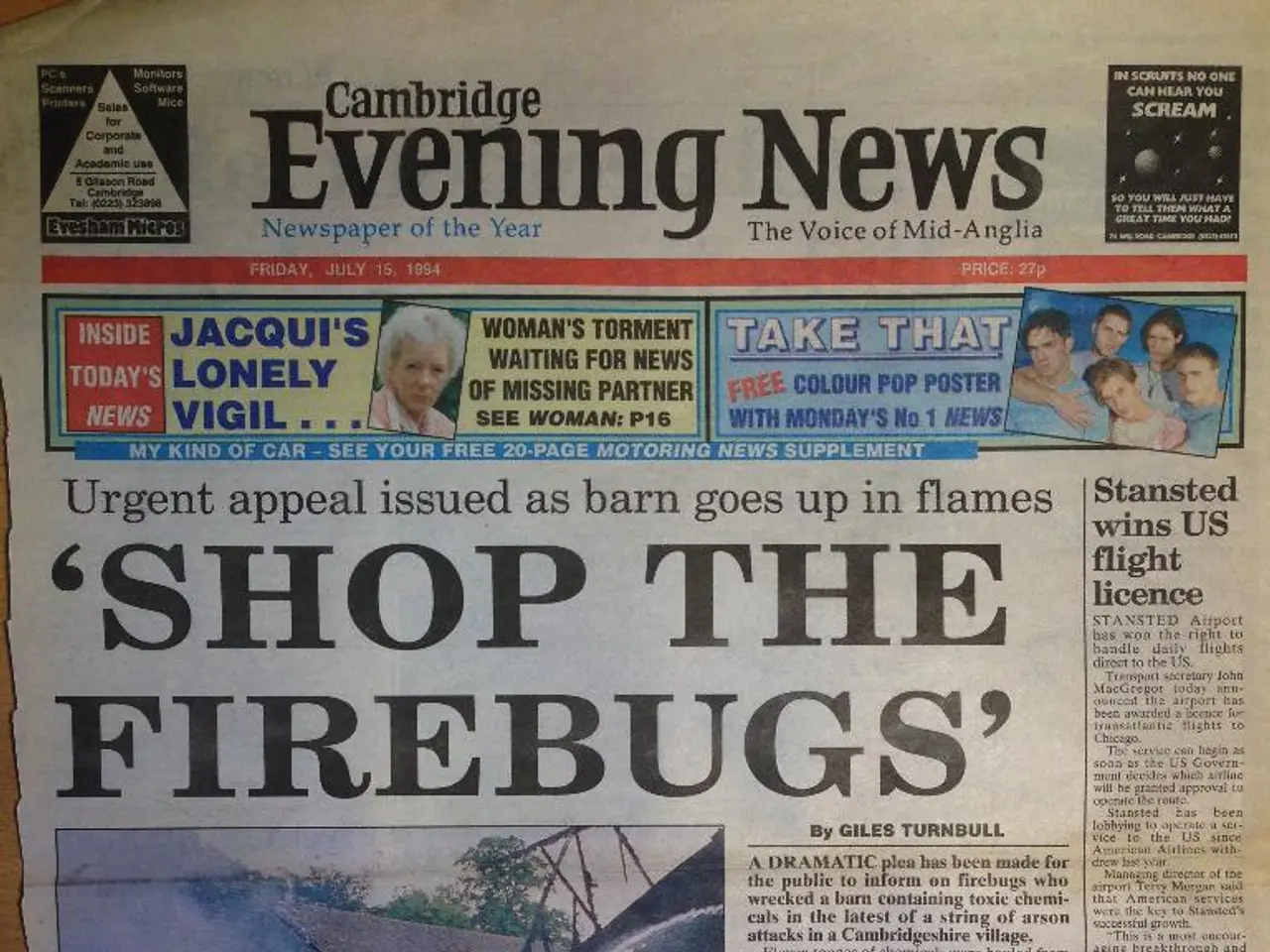Journalist Training in Kosovo Overseen by Professor Anthony Adornato via Fulbright Program
Associate Professor Anthony Adornato recently spent three weeks at Radio Television of Kosovo (RTK), imparting his expertise in multimedia journalism, mobile reporting, social media strategy, and audience engagement to local journalists. The training, part of the New Trends in Communication project, aimed to equip RTK journalists with contemporary tools and strategies to enhance their reporting and engage audiences more effectively through digital and mobile platforms [1].
During his tenure, Professor Adornato worked closely with both the social media and website teams, as well as journalists in the main newsroom. He went into the field with journalists to cover various stories, including a court case and the environmental effects of a polluted river [1].
The training focused on several key areas. Adornato emphasised the importance of multimedia reporting skills that integrate text, video, and audio, as well as mobile journalism techniques that enable reporters to capture and share news stories rapidly using mobile devices [1]. He also highlighted the significance of social media strategies designed to expand reach and foster meaningful engagement with the audience.
This emphasis on social media engagement reflects a broader trend in journalism towards digital convergence and audience-driven content creation. Public broadcasters like RTK can increase viewership and strengthen public trust by interacting directly with diverse audiences, including the Kosovar diaspora, which RTK also serves with Albanian and Serbian programming [1].
Established after the Kosovo War (February 1998 to June 1999), RTK operates both radio and television platforms and plays a vital role in delivering news across the country. However, the broadcaster faces challenges common to public media in transitional democracies, including threats to editorial independence and lack of sustainable funding [2]. The International and European Federations of Journalists, along with the Association of Journalists of Kosovo, have urged authorities to ensure stable funding for RTK [2].
Currently, RTK is navigating a severe financial crisis due to the failure of institutions to allocate the legally approved budget. Despite these challenges, the core values of journalism—accuracy, accountability, and integrity—remain present in Kosovo's media sector [3].
The collaboration between Anthony Adornato and RTK journalists is expected to continue into the future, with the hope that his training will contribute to RTK's role as a critical player in informing citizens, promoting transparency, and contributing to a shared national identity in a post-conflict society [1].
[1] Source [2] Source [3] Source
Tony Adornato, during his stint, collaborated with RTK's social media, website, and main newsroom teams, focusing on personal growth and learning opportunities in education-and-self-development areas such as multimedia reporting, mobile journalism, and social media strategies [1]. His aim was to help RTK journalists engage audiences effectively through digital and mobile platforms, thereby fostering their personal growth and enhancing RTK's critical role in post-conflict society [1].




